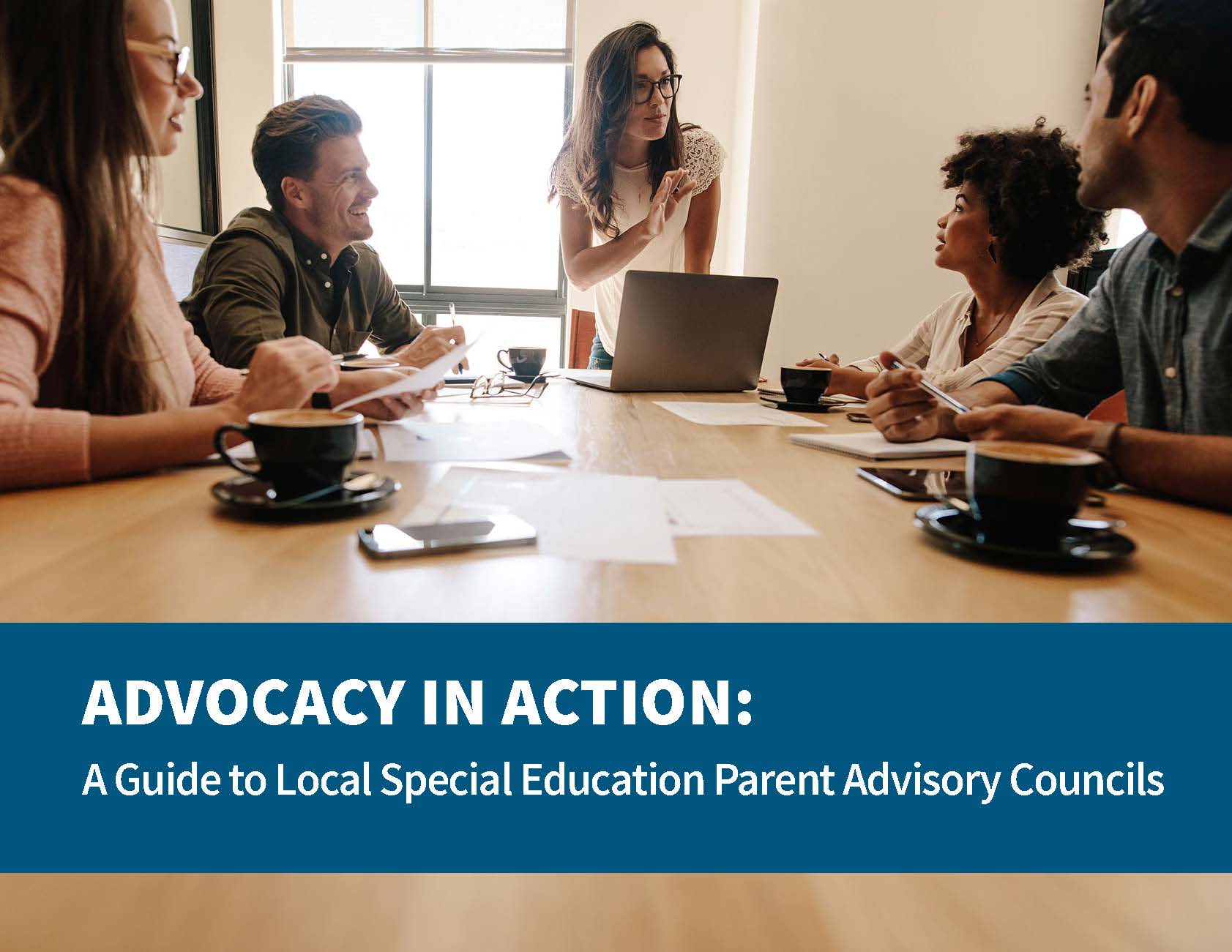The CPIR is proud to present: “Advocacy in Action: A Guide to Local Special Education Parent Advisory Councils.” This comprehensive document is a road map to help bring stakeholders together, suggest strategies to help them engage in dialogue, and discuss best practices to help them work together to benefit the local community. It draws on experience and practice from states in which local SEPACs have been in operation for decades.
The Guide is broken down into 3 sections:
Part I
Adapted for national use from Special Education Parent Advisory Groups in New Jersey, A Guide to Developing and Conducting an Effective Group
This section is designed for parents, state agencies, local education agencies (LEAs), and school leaders interested in establishing and running an effective SEPAC in their local school district. It can be used to start a new group, or to strengthen existing collaboration as a means to improving special education services and outcomes for students with disabilities.
Part II
Developed using a three-pronged approach to gather qualitative information from Parent Center leaders about activity in their state and their efforts to support local SEPACs
This section is designed for staff at Parent Training and Information Centers (PTIs) and Community Parent Resource Centers (CPRCs) and National Parent Technical Assistance Centers (PTACs), as well as statewide leaders and advocates, who are interested in supporting existing local SEPACs, and/or helping to build support to establish local SEPACs.
Part III
Developed from surveys of more than 400 Parent Center leaders and staff to learn more about interests and priorities for this guide and ways in which Parent Centers interface with and support parents as advisors, whether on SEPAC or other groups; interviews with leaders at Parent Centers across the country in those states where SEPACs are present at the local or intermediate unit level; and guidance from state-level leaders on enabling state legislation, as well as rules and regulations to implement that legislation (where it exists) to find common threads and look for trends, themes and best practice
This section contains resources and tools that have proven useful in the establishment, development and ongoing operation of local SEPACs.
The CPIR is thankful to the following Parent Center leaders whose interviews and/or state-level research helped shape this work:
California
Jane Floethe-Ford, Parents Helping Parents, California
Marlena Garcia, ParentsCAN
Irene Martinez, Fiesta Educativa, Inc., California
Cid Van Koersel, WarmLine Family Resource Center
Connecticut
Jennifer Lussier, Connecticut Parent Advocacy Center
Iowa
Karen Thompson, ASK Resource Center, Inc.
Indiana
Lesa Paddack, IN*SOURCE
Kansas
Lesli Girard, Families Together, Inc.
Louisiana
Laura Nata, Louisiana, Families Helping Families of Greater New Orleans, Parent Training and Information Center
Maine
Carrie Woodcock, Maine Parent Federation
Massachusetts
Ruth Diaz, Federation for Children with Special Needs
Leslie Leslie, Federation for Children with Special Needs
Michigan
Nicole Miller, Michigan Alliance for Families
New Jersey
Myriam Alizo, SPAN
Karen Antone, SPAN
New York
Susan Barlow, Parent Network of Western NY, New York
Ohio
Marbella Caceres, Ohio Coalition for the Education of Children with Disabilities
Pennsylvania
Jeannine H. Brinkley, PEAL Center
South Dakota
Carla Miller, South Dakota Parent Connection
Virginia
Candace Cortiella, The Advocacy Institute
Kristin Kane, PEATC
Washington
Ginger Kwan, Open Doors for Multicultural Families


